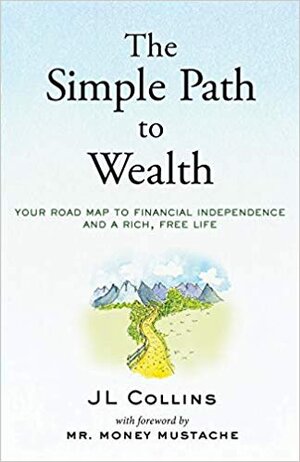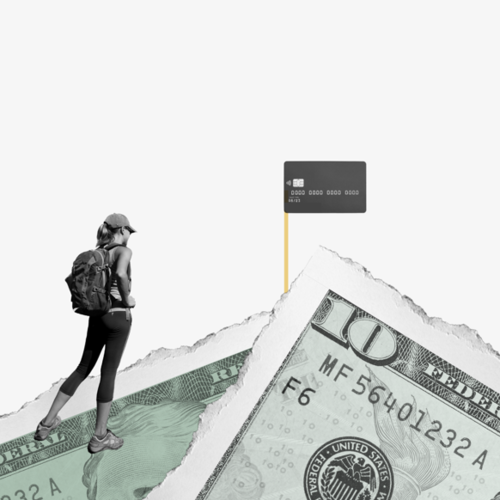simple finances
From a young age we are taught that we do not talk with others about money, and this, I think, has contributed to a murky fog surrounding personal finance for many of us. Investing, saving, retirement, budgeting, debt … this is either very briefly touched upon or not touched on at all in school. Especially if you come from a lower income bracket, especially if you are a woman, especially if you do not actively research this on your own, managing money can be mysterious. I know others feel similarly because anytime I’ve brought personal finance up on my Instagram, I get so many messages about it, asking me to dive deeper. This information is brought over from an older blog post I did last year, but it is still very relevant and I have updated + added information as needed.
If you are new to managing finances, investing, or just need a financial reset, here’s some basic tenets explained, with lots of additional resources linked to explore. I hope it can be helpful and bring some clarity.
Pillars of Personal Finance
photo: Daniel Seung Lee
i. You NEED a budget. It’s non negotiable. I’m not saying you need to be obsessive with it. Maybe a little at first, but once you get into the flow, it will autopilot. If you don’t know where your money is going, you will never be able to make it work for you. You need to take an honest, hard look at things to get started. Literally write every single expense you have in a month down. See where you can trim the fat, so to speak. Ruthlessly detox and clear anything that’s hindering your financial goals. Set reasonable limits. Do a quick 10-15 minute weekly check in with your finances (I like to do this Friday mornings) to remind yourself of where you’re at and what you’re working with. Monthly, review what went well this month and what you could do better with next month, set a goal for yourself.
Recommended: Personal Capital , a really wonderful free service I’ve been using for over 5 years to budget on // a good old Excel spreadsheet or pen+paper.
ii. You NEED to open a retirement account, if you haven’t already. I have never worked at a job that offered a retirement account, so guess what, I had no idea this was even something I should do. Ideally everyone, as soon as they begin working, should open a retirement account. If you have one through your job, lucky you- fund that baby to the max if you can. And if you have an employer that matches up to a certain %, be sure to do it. You’re literally throwing away free money if you don’t. Investing is something a lot of us put off because it can seem scary or complicated or boring. Promise you it’s not, and it’s SO IMPORTANT. When I set up my account, it took me very little time. I use Vanguard for my IRA, they have low fees, great customer service/response time, and are client owned. I’ve heard Fidelity is another really good option.
Study List: Freakanomics podcast episode on money // John Oliver video // Frugalwoods Personal Finance Series // JL Collins Stock series
iii. Start funding an emergency fund. This is a savings account that will vary from person to person, and should have 3-6 months worth of living expenses. If an unexpected large expense comes up that you can’t pay for out of your normal month flow, your emergency fund enables you to pay cash and not have to go into debt. Dentist work, hospital bills, major car repairs, losing your job unexpectedly, pay cuts, family illness, etc. Whenever you use the emergency fund, it should be brought back up to fully funded as soon as you can.
More Information: Dave Ramsey Emergency Fund FAQ // emergency fund calculator
iv. Live within your means. Don’t buy things unless you have the cash to cover them, and be realistic and confident about where you’re at financially right now. Unpack and work through any desires that arise around pressure to “keep up” with purchases/lifestyles of those around you, or overextending yourself financially due to ego. Often these can indicate deep rooted feelings of lack, shame etc around money that you’ve picked up from societal programming, childhood, etc.
Simplifying and Reducing
i. Reusables over disposables. When I came across zero waste years ago, I realized I was already doing some of the lifestyle steps simply to save money. Single use products like paper towels, plastic water bottles, paper napkins, paper/plastic plates, tissue, tampons/pads, even diapers are SO much more expensive than their reusable counterparts. Reusables may have an up front cost, but over time they pay for themselves over and over again. To me, buying single use is like throwing your money in the trash- not to mention the environmental costs too.
ii. Cook at home, real food. Whenever possible, cook at home, using real ingredients. Bulk dry beans, rice, oats, seeds, potatoes, and other plant based food staples are super inexpensive. It doesn’t need to be fancy at all, so don’t get intimidated by the idea of cooking if you don’t have much experience. Find a few easy recipes that you really enjoy eating and are fast- and rely on them. Also, bring food with you when you leave the house, ESPECIALLY if you have kids! Having snacks (almonds, dates, an apple, banana are all easy to grab) on you at all times helps you not get hangry and wanting that $12 acai bowl. I always pack a lunch for Carmela for so many reasons- but also it saves us a ton of money.
iii. Use cash for things you tend to overspend on. This is really helpful if you’re trying (or have to) stick to a budget. I did this a lot when it was just me and Carmela and I literally could not overspend even a few dollars over my budget. I would have an envelope system with cash for food and go to the grocery store with that cash, so I didn’t overspend. Using a card, we are much more willing to pick up that “extra” that we don’t need. But if I have cash, it’s easy to see just what I have and know that when that runs out, that’s it. I use this method at the farmer’s market, where it’s easy for me to fall in love with all the fruits and vegetables and overbuy.
iv. Experiences over things. Often for birthdays + holidays, we go somewhere together as a family and enjoy time together instead of buying things. Joel and I don’t usually exchange gifts, simply because we don’t like to, but also because to me, our relationship is deeper than a material item. I want to enjoy my family’s company, not be stressed out preparing, buying, wrapping, and cleaning up after presents. This has been a HUGE shift for us over the years- I’ve honestly never been a holiday person since I was brought up a Jehovah’s Witness, but Joel was. Year after year we pare down more and more and it feels great to have more time together, focusing on our relationships and time together instead of things.
v. Simplify your life. Learn to live with less and enjoy it. Take pleasure in your home and make it cozy and fun to be in so you’re not tempted to go out every night. Apply this approach to everything in your life: keep what you love and what brings you daily joy and cut out the rest. Love a smaller and intentional wardrobe, kitchen + pantry, and living space. Do the same with your responsibilities/obligations, friends, etc. Life is simply too short to not enjoy it. When you’re happier, you’re less likely to spend money on outside things like material possessions. When I feel a strong desire to purchase something, it’s usually because something in my life or inside myself is “off” and i’m looking to avoid that feeling or soothe myself through a purchase. This is annoying, but it’s like that Kanye song “the things we buy to cover up what’s inside”. haha.
vi. Buy secondhand + repair when needed over buying new. Self explanatory, but we have learned to wait a bit and be flexible when we need a certain item, searching in thrift stores, Craigslist, Freecycle, and finally Ebay to try to locate it secondhand before buying new. All our cars have been used, too. Something already created uses the least amount of resources, since it already exists! So its the most eco friendly, and also its generally much less expensive. If you have something that breaks, fix it instead of trashing it an buying something new! Adopt a circular mindset.
vii. Examine what you value and what brings you joy- and spend your money there. Don’t be a miser and hoard every dime- that’s no fun either. It’s normal and human to desire material things, we live in a physical world. The joy of saving is so that you can spend money on the things that make your life rich. For example, food is one of our biggest expenses, because I love eating and cooking. Food is so important to my happiness, I could pare down here but I don’t want/need to because I prioritize it and cut back in other areas. For others, it may be something totally different- and that’s amazing! Find what your thing is and look forward to budgeting/saving for your goals. It’s so much easier to forgo an impulse purchase if you have a clear picture of your goals.
viii. Honestly evaluate wants and needs. Often, our NEEDS are actually WANTS. With so many online retailers offering near instant purchase gratification, it can be so easy to want something and immediately get it. I often employ a time buffer in between buying things, waiting before I purchase and seeing if I even still want it days or weeks later. Often times, the answer is “no”- I actually didn’t need it, or could find a way to live happily without it. If I still passionately want it, I’ll buy. Otherwise, if the attraction has faded, I pass.
ix. Be grateful and appreciate what you do have. Be aware of your privileges every day that you have food to eat, clean water to drink and bathe in, legs to walk on, people whom you love + who love you, physical or mental health, a place to live, etc. A few years ago I watched this documentary, Living on One Dollar, which shares a little about poverty in Guatemala. Also, this documentary, also on Netflix, examining the subjectivity of happiness: Happy. Love what you already have, realize how rich and beautiful your life and relationships already are, and be here now. Share your extra money, time, love with those who need it more than you. That’s all there is.




